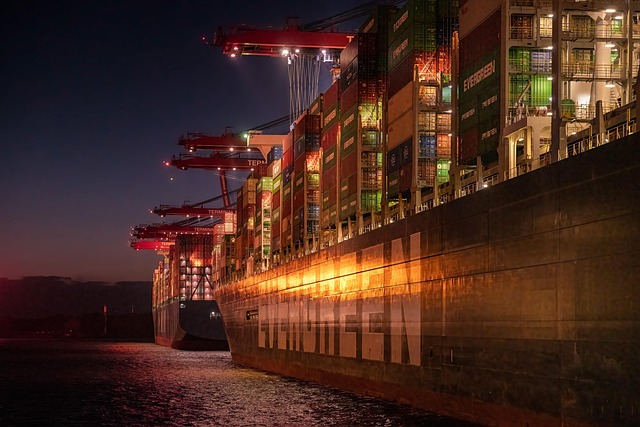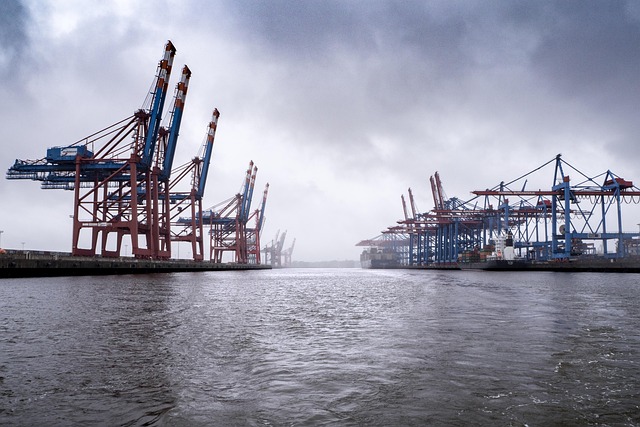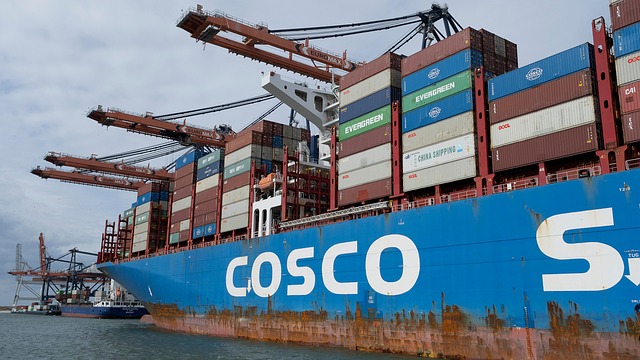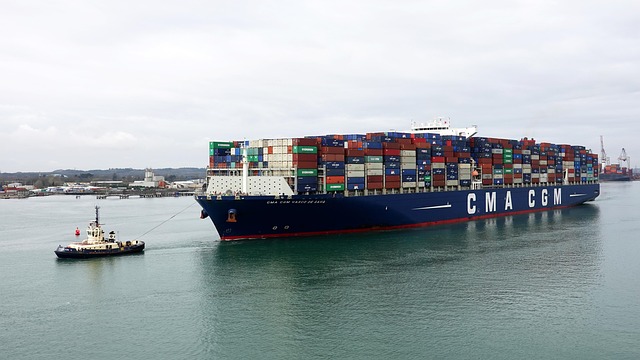Shipping containers revolutionize startup logistics with cost-effective, versatile solutions. From temporary storage to international freight, various container types and modular designs cater to specific needs. Renting or leasing options, including second-hand markets, offer flexibility and affordability for startups optimizing their supply chain processes.
“Revolutionize your startup’s logistics operations with affordable shipping containers—a game-changer in cost-effective supply chain management. This article explores how these versatile units can streamline your business, offering numerous benefits such as flexible storage, easy transportation, and efficient space utilization. We’ll guide you through the process of finding and acquiring these containers, from identifying reputable sources to negotiating prices. Get ready to dive into a new era of streamlined logistics.”
- Shipping Containers: A Cost-Effective Solution for Startups
- Benefits of Using Shipping Containers for Logistics
- Finding and Acquiring Affordable Shipping Containers
- Optimizing Space and Operations with Container Usage
Shipping Containers: A Cost-Effective Solution for Startups

Shipping containers have emerged as a cost-effective solution for startups looking to optimize their logistics operations. These versatile intermodal containers, commonly known as freight or cargo containers, offer a range of benefits that cater directly to the needs of burgeoning businesses. By leveraging existing global container shipping networks, startups can efficiently transport goods across borders at significantly lower costs compared to traditional freight methods.
Furthermore, the modular design of these containers allows for flexible and rapid deployment, enabling startups to quickly set up temporary storage or even convert them into functional offices, workshops, or retail spaces as their operations grow. With various container types like ISO containers, high cube containers, refrigerated containers, and open top containers available, startups can tailor their choice based on specific cargo needs and transport requirements, making them a versatile asset for any young enterprise aiming to establish a robust logistics infrastructure without breaking the bank.
Benefits of Using Shipping Containers for Logistics

Using shipping containers for logistics operations offers a multitude of benefits that make them an attractive option for startups looking to streamline their supply chain processes. Firstly, they provide significant cost savings due to their versatility and efficiency in container shipping, which reduces transportation costs. Shipping containers are designed for international trade, ensuring secure and standardized transport, allowing businesses to focus on core competencies rather than logistics management.
These containers offer a range of options tailored to specific needs, from standard ISO containers for general cargo to specialized refrigerated containers for temperature-sensitive items. Their modular nature enables easy stacking, efficient storage at container depots, and versatile use in various settings. Moreover, leasing or renting these containers provides flexibility, allowing startups to scale up or down as their operations grow, making them a sustainable choice for dynamic logistics requirements.
Finding and Acquiring Affordable Shipping Containers

Finding affordable shipping containers is a crucial step for startups looking to optimize their logistics operations. One effective strategy is to explore the second-hand market, where numerous options are available at significantly reduced prices compared to new containers. Repurposed freight containers, including intermodal and cargo containers, often see substantial price drops after their initial use in international shipping or storage. Many suppliers offer container leasing and rental services, allowing startups to access these assets without a large upfront investment. Online platforms dedicated to container sales and rentals make it easier to find suitable options based on specific requirements like dimensions, capacity, and type (e.g., ISO, high cube, refrigerated).
Additionally, considering modular containers or office containers can provide flexible and cost-effective solutions for startups needing temporary or adaptable spaces. Container depots and warehouses often have a range of used containers available for purchase or rental, allowing businesses to negotiate prices and potentially find unique, specialized containers that suit specific cargo handling needs. This strategic approach ensures startups can secure reliable shipping containers without breaking the bank, thereby streamlining their logistics infrastructure from the outset.
Optimizing Space and Operations with Container Usage

Startup logistics operations often face space and efficiency challenges, but integrating shipping containers can be a game-changer. These versatile units offer a compact solution for storing and transporting goods, optimizing limited space within warehouses or distribution centers. By utilizing containerized storage and transport, startups can streamline their operations, reduce handling times, and improve overall productivity.
Shipping containers come in various types and dimensions, catering to diverse needs. From standard ISO containers to specialized options like refrigerated, flat rack, or open-top containers, there’s a size and configuration to suit every requirement. This modularity allows startups to rent or lease containers based on their specific demands, whether it’s for short-term storage, transporting freight across borders, or setting up temporary offices in remote locations. Container usage also facilitates intermodal transport, enabling seamless movement of cargo between different modes of shipping, such as sea, rail, and road.
For startups looking to streamline their logistics operations without breaking the bank, affordable shipping containers offer a practical and flexible solution. By leveraging these versatile units, businesses can optimize space, enhance efficiency, and reduce costs significantly. With proper planning and strategic deployment, shipping containers can become the backbone of a robust and cost-effective supply chain management system.
